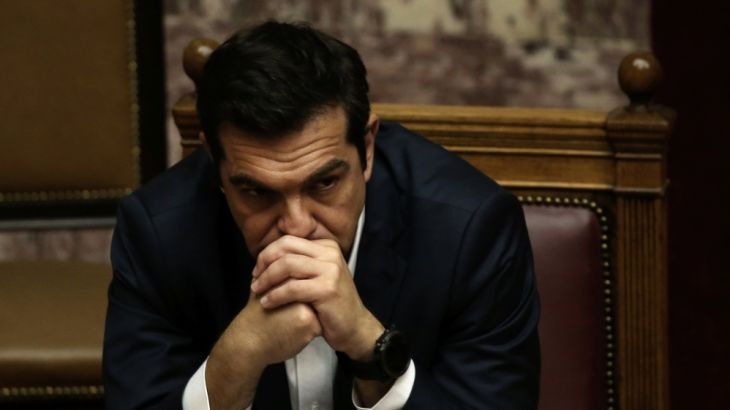Eurozone fails to agree fresh Greek bailout
Talks in Brussels did not end in a deal needed to unlock Greece’s next installment of multi-billion euro bailout.

Eurozone finance ministers have failed to agree on debt relief for Greece with the International Monetary Fund (IMF) and did not release new loans to Athens, but came close enough in talks to aim for both deals at their next meeting in three weeks.
Greece has to repay more than €7.3bn ($8.19bn) in maturing loans this July.
Keep reading
list of 4 itemsParallel economy: How Russia is defying the West’s boycott
US House approves aid package worth billions for Ukraine, Israel
Ecuador weighs security, international arbitration in latest referendum
Tuesday’s deal included the approval of the next batch of bailout money, but also an agreement on the sort of debt relief measures Greece can expect to get when its current bailout programme ends next year.
|
|
“The Eurogroup held an in-depth discussion on the sustainability of Greece’s public debt but did not reach an overall agreement,” the euro zone ministers said in a statement.
“Work will continue in the coming weeks within the framework agreed in May 2016 with a view to reaching a definitive conclusion at the next Eurogroup meeting.
“This includes an ambitious and economically sound medium-term primary surplus path for Greece,” the statement said.
The Eurozone’s top official Jeroen Dijsselbloem said a broad settlement involving both the next payout and the outlines of a debt relief deal is close, and could be reached in three weeks when finance ministers from the 19 countries from the single currency bloc meet in Luxembourg on June 15.
The EU Commission’s spokesperson Margaritis Schinas also stressed that “we are convinced that Greece has delivered. Now it is up to its partners to do the same”.
The IMF stalemate
One of the major stumbling blocks has centred on a divergence of opinion between the Eurozone and the IMF, which is not involved financially in Greece’s current three-year bailout programme.
Getting the IMF on board is important as, without its participation, Germany and The Netherlands will refuse to lend more money to Greece.
READ MORE: Greece – A gateway for China’s New Silk Road into Europe
The IMF has argued that the Eurozone forecasts underpinning the Greek bailout are too rosy and that the country, as a result, should get substantial debt relief so it can start growing on a sustainable basis.
But Germany is wary because doing any favours for Greece is deemed a vote-killer ahead of general elections in September.
“The German finance ministry does not want to specify mid-term debt [relief] measures to the extent required by the IMF,” Tzanakopoulos said.
Greece’s depression saw the economy shrink by a quarter and unemployment and poverty levels ratchet up sharply.
|
|